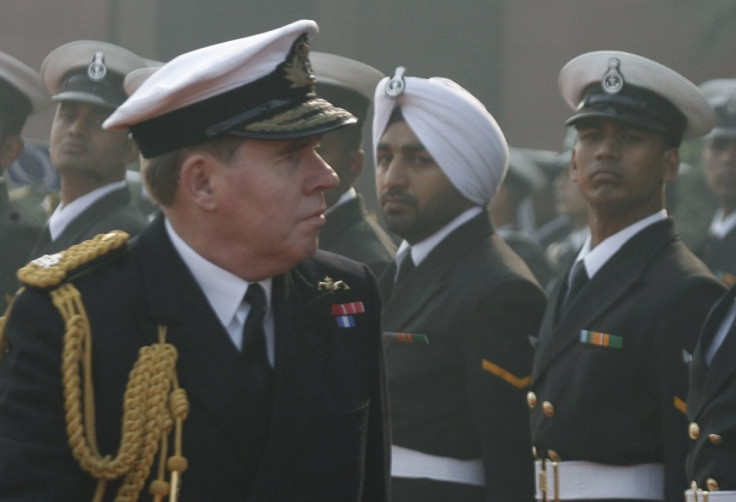Navy Chief warns that prolonged Libya efforts are unsustainable

The head of the Royal Navy, Admiral Sir Mark Stanhope, the First Sea Lord, has warned that the UK fleet will not be able to continue the current scale of operations around Libya beyond the summer unless ministers take tough decisions about what they want to prioritise.
While Stanhope admitted the navy had planned for a six-month commitment, he yesterday warned that the government would have to make "challenging decisions" about what it wanted to do thereafter.
Stanhope also conceded that if the aircraft carrier Ark Royal and its Harrier jump jets had not been axed last year, they would have been deployed to the Mediterranean as it would have been considerably cheaper than having to fly planes from the Italian base at Gioia del Colle, he affirmed.
Stanhope's remarks came as NATO has been largely criticised in the last week. While the UK Ministry of Defence (MOD) revealed it is becoming increasingly apprehensive of the costs of the NATO-led operation after the decision to prolong it from a further 90 days emerged, US Defence Secretary Robert Gates also attacked some allies for already running out of ammunition and insisted the future of the Alliance was more than uncertain.
During the briefing at Admiralty House, Stanhope said: "How long can we go on as we are in Libya? Certainly - in terms of Nato's current time limit that has been extended to 90 days - we are comfortable with that.
"We have a small-scale commitment in Libya ... if we do it for longer than six months then we have to reprioritise our forces.'
"Beyond that we might have to request the government to make some challenging decisions about priorities.
"There are different ways of doing this. It's not simply about giving up standing commitments, we will have to rebalance."
When asked to provide further explanation on the possible changes ahead, Stanhope denied they would involve a review of the cuts set out in last year's Strategic Defence and Security Review (SDSR) and confirmed that Afghanistan remains the MoD's top priority, and officials are adamant that the effort there will not in any way be affected by the Libyan campaign.
However the Admiral also made it clear that he did not have enough ships to continue the relatively small operation in Libya without something else having to give in.
"If we do it longer than six months we will have to reprioritise forces," he said. "That is being addressed now. It could be from around home waters. I will not prejudge what that decision will be."
The navy currently has one destroyer, HMS Liverpool, the mine clearance vessel HMS Bangor, a Trafalgar class submarine and the helicopter carrier HMS Ocean off the coast of Libya. At the start of the conflict the navy diverted HMS Cumberland to the Mediterranean as it was returning to the UK to be scrapped.
As Nato has, in the last month, increased its airstrikes campaign, Stanhope yesterday admitted that the navy was having to buy more Tomahawk cruise missiles from the US to replace the ones it had already fired.
Stanhope's was preceded by month of frustrations related to on-going criticisms around the decision to axe Ark Royal and his speech can be seen as a challenge to Prime Minister David Cameron and Defence Secretary Liam Fox, who both agreed the scrapping of Ark Royal in last year's Strategic Defence and Security Review.
But the First Sea Lord also said it was time to move on from the debate and explained "If we had Ark Royal and Harriers in February, I feel relatively assured that we would have deployed that capability off Libya to conduct the ground [operations], not the air defence piece which the Harrier was not capable of achieving.
"The pros would have been a much more reactive force. Rather than deploying from Gioia del Colle, we would deploy within 20 minutes as opposed to an hour and a half, so obviously there are some advantages there.
"It's cheaper to fly an aircraft from an aircraft carrier than from the shore.
"Do I feel bitter? No. It's a reality of where we are. I keep saying this. We have to look forward and go for what is in the pipeline which I have already indicated is challenging enough. There is far too much about what could have been as opposed to what is."
Meanwhile, Liam Fox, the defence secretary, insisted: "Operations in Libya are showing how capable we are post-SDSR as a leading military power with the fourth largest defence budget in the world. We continue to have the resources necessary to carry out the operations we are undertaking and have spare capacity with the Royal Navy taskforce which is currently on exercise in the Gulf.
"The SDSR is not being re-opened. The Harrier has served with great distinction over a long period and in a number of theatres, but we are not bringing them back into service. Our planning assumptions remain valid and we have been able to effectively conduct missions over Libya. We are now progressing with the disposal of the Harrier force."
© Copyright IBTimes 2025. All rights reserved.





















